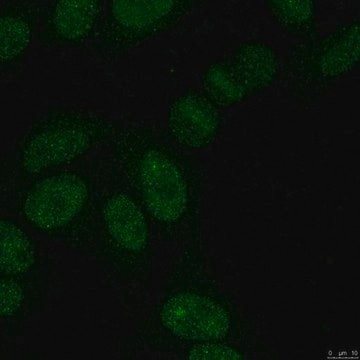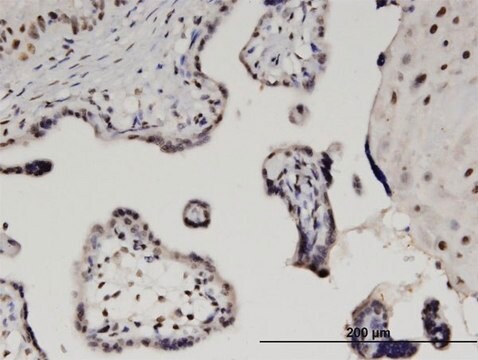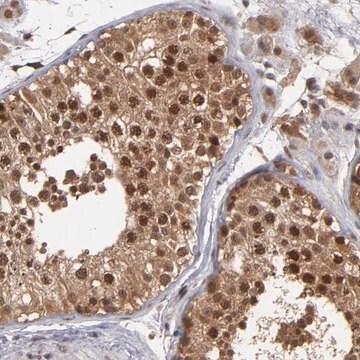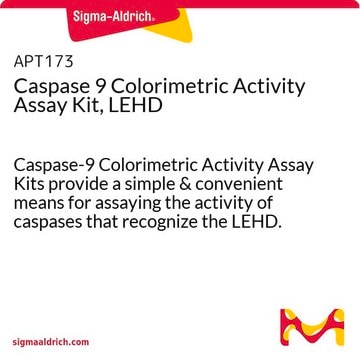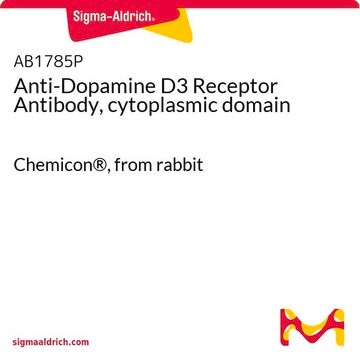SAB4200190
Anti-Sumo-2/3 antibody, Rat monoclonal
clone 3H12, purified from hybridoma cell culture
Sinónimos:
Anti-HSMT3, Anti-MGC117191, Anti-SMT3 homolog 2, Anti-SMT3 suppressor of mif two 3 homolog 2, Anti-SMT3B, Anti-SMT3H2, Anti-sentrin 2, Anti-small ubiquitin-like modifier 2, Anti-small ubiquitin-related modifier 2, Anti-ubiquitin-like protein SMT3B, Monoclonal Anti-Sumo-2/3, SUMO-2/3, SUMO2/3
About This Item
Productos recomendados
conjugate
unconjugated
antibody form
purified from hybridoma cell culture
antibody product type
primary antibodies
clone
3H12, monoclonal
form
buffered aqueous solution
mol wt
~11 kDa
species reactivity
mouse, rat, human
concentration
~1.0 mg/mL
technique(s)
immunocytochemistry: suitable
western blot: 2-4 μg/mL using HeLa cell nuclear extract
UniProt accession no.
shipped in
dry ice
storage temp.
−20°C
target post-translational modification
unmodified
Gene Information
human ... SUMO3(6612)
mouse ... Sumo3(20610)
rat ... Sumo3(499417)
General description
Immunogen
Application
Biochem/physiol Actions
Physical form
Disclaimer
¿No encuentra el producto adecuado?
Pruebe nuestro Herramienta de selección de productos.
Storage Class
10 - Combustible liquids
flash_point_f
Not applicable
flash_point_c
Not applicable
Certificados de análisis (COA)
Busque Certificados de análisis (COA) introduciendo el número de lote del producto. Los números de lote se encuentran en la etiqueta del producto después de las palabras «Lot» o «Batch»
¿Ya tiene este producto?
Encuentre la documentación para los productos que ha comprado recientemente en la Biblioteca de documentos.
Nuestro equipo de científicos tiene experiencia en todas las áreas de investigación: Ciencias de la vida, Ciencia de los materiales, Síntesis química, Cromatografía, Analítica y muchas otras.
Póngase en contacto con el Servicio técnico
